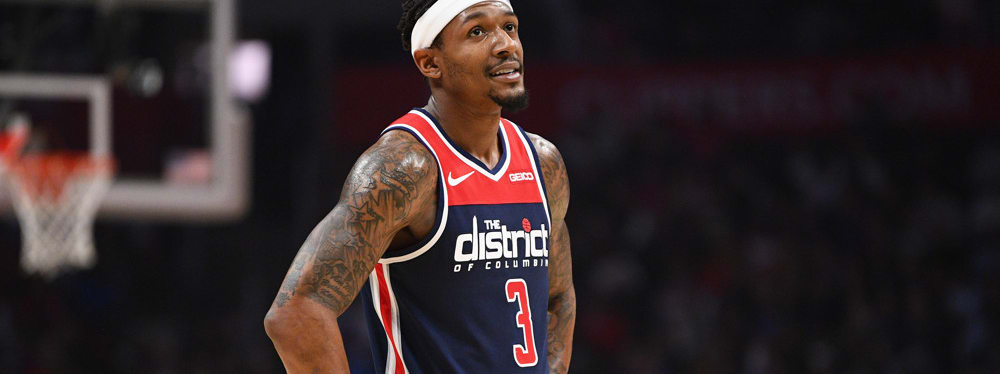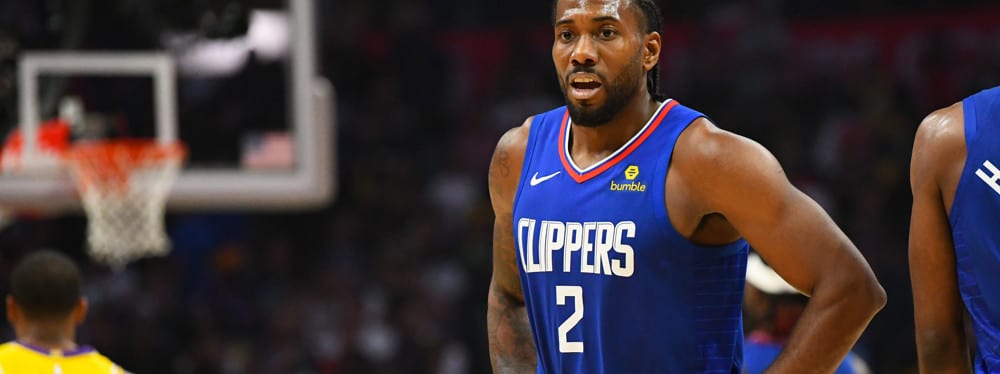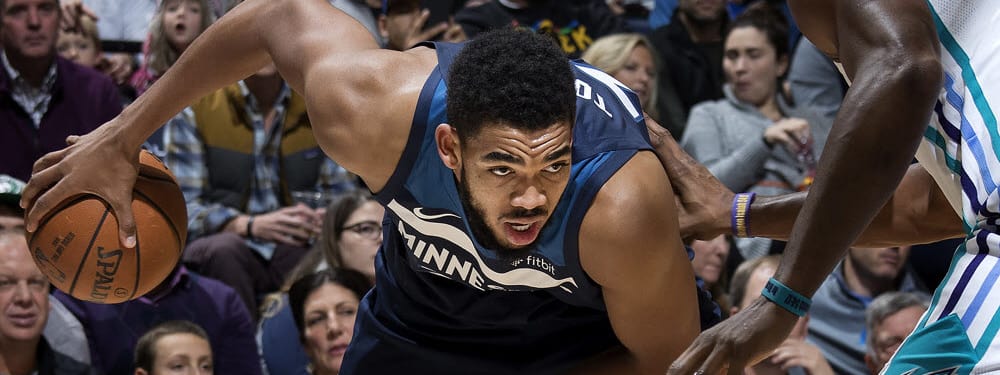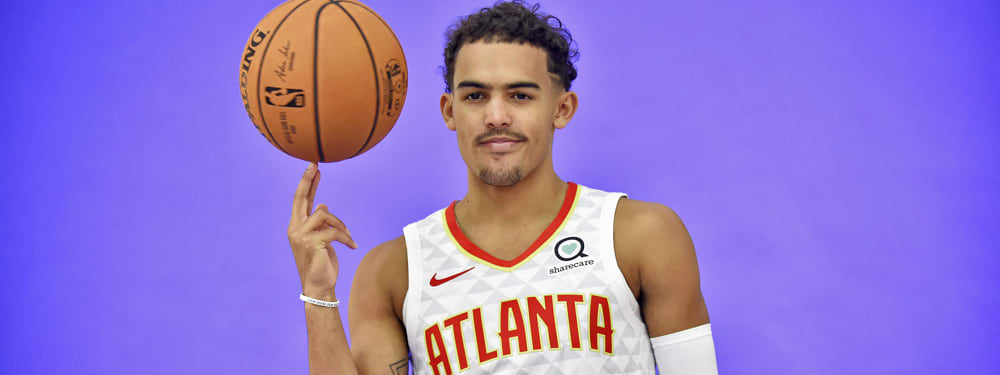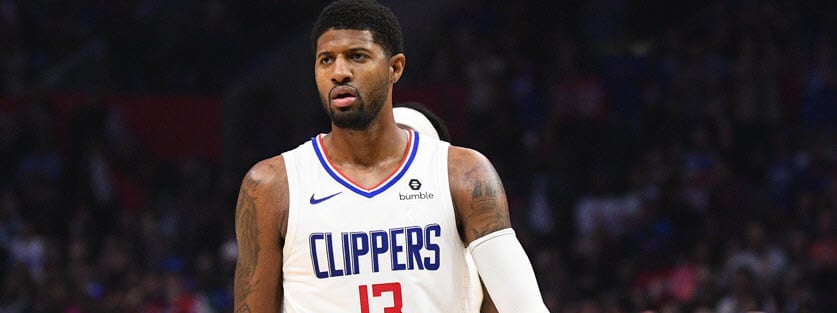Recent RotoWire Articles Featuring Chandler Parsons
See More
Parsons arrives in Atlanta after being traded from Memphis for Solomon Hill and Miles Plumlee in a salary dump. The 30-year-old forward averaged 7.5 points, 2.8 rebounds and 1.7 assists for Memphis last season in just under 20 minutes per game. Injuries took their toll once again, as Parsons appeared in a career-low 25 games in 2018-19, bringing his total over the last three years to just 95 games. Even if fully healthy this season, Parsons will likely play a very minimal role with the Hawks, being leapfrogged on the depth chart by De'Andre Hunter, Cam Reddish, John Collins, Jabari Parker and Evan Turner at both forward spots. It's best to avoid Parsons, even in deeper formats, as there are just too many mouths to feed in Atlanta.
Any hopes of Parsons enjoying a relatively healthy 2017-18 season were quickly dashed, as a combination of knee problems, illness and a maintenance program allowed him to play just two more games than the 34 he’d played in his debut 2016-17 Grizzlies campaign. The veteran wing averaged a modest 19.2 minutes per contest, leading to averages of 7.9 points, 2.5 rebounds and 1.9 assists. He did demonstrate that his trademark shot is as healthy as ever, draining an impressive 46.2 percent of his 6.5 shots per contest, including a career-best 42.1 percent from behind the arc. Even if he’s able to put in more time this season, it may be a case of too little too late, as Garrett Temple, Kyle Anderson and Omri Casspi were all acquired this offseason and stand to put a dent in Parsons’ minutes. Moreover, if he’s unable to prove that his surgically repaired knee is healthy enough to allow him to serve as a reliable option off the bench, he could potentially find himself on the outside looking in for a roster spot.
Parsons has struggled with health as of late, averaging 63.5 games played over the two seasons prior to the 2016-17 campaign. He appeared during just 34 games last year, eventually undergoing surgery in March to repair a partially torn meniscus in his left knee. He had been dealing with knee soreness the entire season, performing well below expectations as a result. The 6-foot-10 forward ended up posting only 6.2 points, 2.5 rebounds and 1.6 assists across 19.9 minutes per game while shooting a horrendous 33.8 percent from the field and 26.9 percent from deep. That said, Parsons has performed well when unencumbered by serious injury, which was not the case last season. From the 2012-13 to the 2015-16 season, he averaged 15.4 points, 5.1 rebounds, 3.2 assists and 1.0 steal while shooting 47.7 percent from the field and hitting 1.9 threes per game at a 38.5 percent clip. When considering Parsons in Fantasy, that is likely the standard he should be held to, but things will become difficult and muddy when his name inevitably continues to fall down the draft board as a result of his injury history. The current roster situation in Memphis should allow for a healthy Parsons to carry a large role within the team, however, likely acting as the third option behind Mike Conley and Marc Gasol. Drafting Parsons obviously comes with significant risk, but if he's available in the later rounds, he might be worth a flier.
For the second consecutive year, Parsons played well when healthy before having his season cut short by a knee procedure. Parsons’ 2015 microfracture surgery was the much larger concern and left his restricted to begin this past season, but he tore his meniscus in the same knee in March, which kept him out of the final 17 games (including playoffs). When on the court, Parsons is a reliable scoring option who provides solid all-around counting stat production on the wing -- he’s averaged 15.4 points, 5.1 rebounds, 3.1 assists and 1.0 steal per game over the last three seasons -- but at this point it’s difficult to trust that he’ll hold up over the course of an 82-game schedule. After leaving this Mavericks to join the Grizzlies this summer, Parsons is still worth a mid-round investment, but penciling him in for more than 70 games may be a tad optimistic.
Parsons' first season with the Mavericks didn't go according to plan as the midseason trade for Rajon Rondo and multiple injuries limited Parsons' overall productivity. He appeared in 66 games, the second lowest total of his career, and his 33 minutes per game were his lowest since his rookie season. Parsons finished the year averaging 15.7 points, 4.9 rebounds, 2.4 assists, and 1.0 steal per game. Parsons continued to shoot the ball well, hitting 46 percent of his attempts from the field and 38 percent from behind the arc, while connecting on 2.0 made three-pointers per game. His season ended prematurely after he aggravated a knee injury during the postseason. Surgery was performed in early May, and whispers of microfracture surgery emerged. The Mavs never publically revealed the extent of the procedure, but Parsons did document his progress through rehab on social media, helping ease some of those concerns. However, his availability to start training camp remains a question mark, and there's a chance his recovery carries over into the regular season. When he does return, Parsons hopes to assume a larger role in initiating the Dallas offense and could see some time as a point-forward. Parsons has a legitimate chance to improve in his second year in a Mavericks uniform, but his health remains the deciding factor.
Chandler Parsons is entering his fourth season in the NBA. In his third and final season with the Rockets, Parsons continued to improve, averaging 16.6 points, 5.5 rebounds, 4.0 assists, 1.2 steals, and 0.4 blocks in 38 minutes per game through 74 games played. He shot 47 percent from the field on 13.3 attempts per game and 74 percent from the free-throw line on 3.0 attempts per game. In one of the more peculiar decisions in free agency, the Rockets elected to make Parsons a restricted free agent. Dallas jumped at the chance, signing the forward to a lucrative three-year deal that Houston failed to match. After spending most of the summer with Team USA, Parsons will get a chance to play a bigger role in Dallas, joining teammates Dirk Nowitzki and Monta Ellis to lead the offensive attack. The trio perfectly compliments one another, opening up opportunities all over the court. Coach Rick Carlisle wants to run an up-tempo offense, and Parsons, 17th in the league in fast break points last season, will be in the perfect position to continue his upward growth.
Parsons had his believers last season, and if you were one of them, he probably holds a special place in your fantasy heart right now. Not only did he jump from 1.0 to 2.0 three-pointers per game from his first to his second year, but he did so while also pumping up his field-goal percentage from 45 to 49 percent. His free-throw percentage skyrocketed from 55 percent to 73 percent, and in turn, he averaged a career best 15.5 points per game. Parsons is the epitome of a guy who helps out everywhere and hurts you nowhere. The acquisition of Dwight Howard should only help Parsons, who should get even more open looks from downtown on inside-out plays. The current roster in Houston also means that Parsons and James Harden are easily the two most reliable long-range shooters, meaning shots should be plentiful and we could see a rise in three-pointers in 2013-14. The question that remains is whether or not last season was Parsons' ceiling or if he has significant room to get better. He will be 25 this season, so chances are we haven't seen him at his best yet, and if that's the case, he should be scooped up before the 40th pick in nine-category leagues.
Rockets coach Kevin McHale did a lot of tinkering with his rotations last season, especially at small forward, but in the end, Parsons came away with a firm grasp on the starting job. He finished the season with averages of 9.5 points, 4.8 boards, 2.1 assists, 1.2 steals, and 1.0 threes in 28.6 minutes per game. Those numbers could improve in Parsons’ second NBA season, especially with a more concrete role on the team coming into the season. For a rookie, he had impressive shooting percentages of 45.2 percent from the field and 33.7 percent from downtown. Unfortunately he also shot just 55.1 percent from the line, though he averaged just 1.2 attempts per game. Parsons’ best free-throw shooting season in his four years of college was 66.2 percent, but that was also the year he had the most attempts. He could be something of a liability at the line, but at least he won’t be getting too many attempts at the charity stripe. The Rockets brought in Carlos Delfino in the offseason to compete with Parsons for minutes at the three, but given Parsons’ youth and McHale’s familiarity with him, it seems like the starting job is his to lose.
The 38th overall pick in last year's draft, Chandler is a big man with some shooting and scoring ability. He'll vie for a reserve role at small forward behind Chase Budinger and Marcus Morris.
